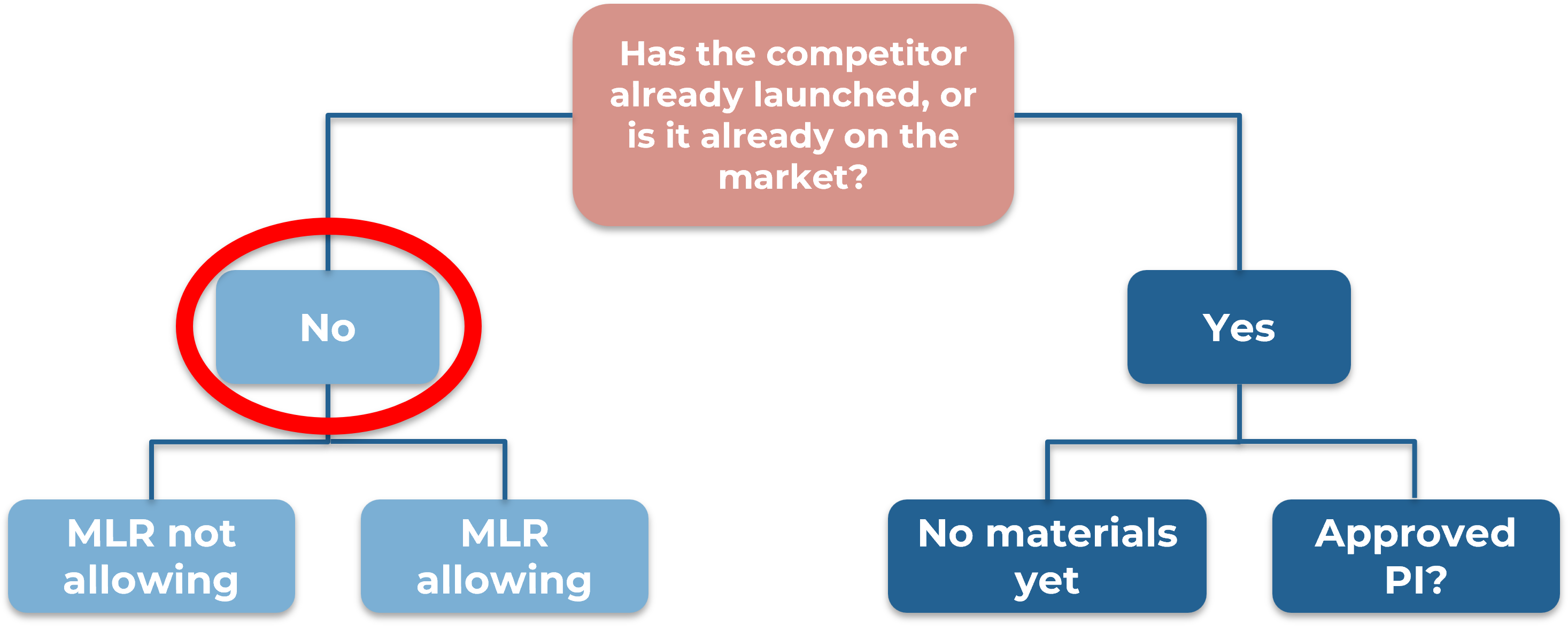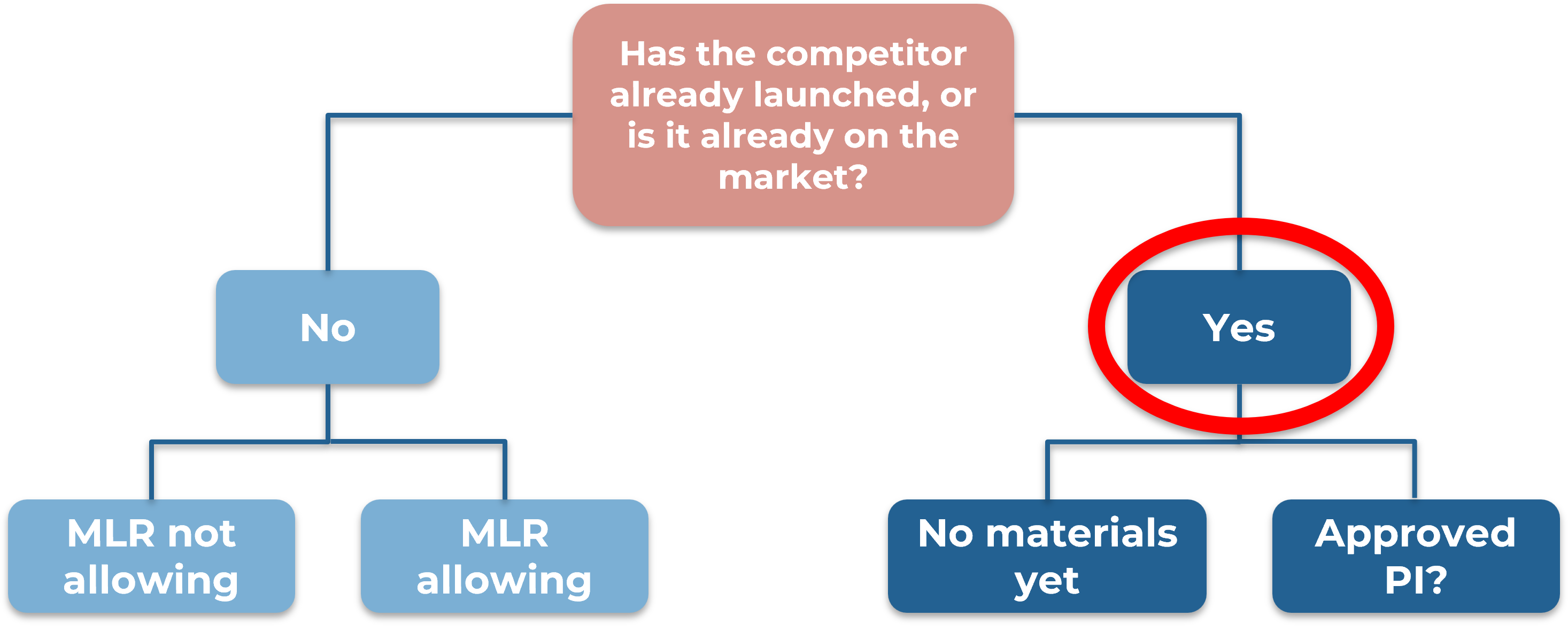“There’s a new competitor coming! What training can you do by yesterday?”
Does this sound familiar? How about this one?
“We’re hearing from the field that they are getting lots of questions about the competition; we need some training ASAP!”
In this post, we’ll share some strategies to help you navigate requests for training around competition, whether there’s a new competitor on the horizon or your field forces are facing ongoing competitive pressures.
We know that often the news of an imminent competitive product launch or persistent pressure from current competitors can distract your representatives and cause disruption in the field. When you develop training about the competition, you must ensure that your solutions keep your representatives:
- focused on selling their own product
- prepared to sell in a dynamic competitive market
- confident in proactively addressing competitive challenges
If you don’t achieve this goal, you could end up with representatives who are confused or unprepared.
So how do you develop training on the competition? At Whole Systems, we use a broad algorithm of questions to focus on which type of competitor training might work in different situations. The first question to ask is:
Has the competitor already launched? If yes, how long ago? If not, what is the expected PDUFA date?

Let’s start with some questions you can ask yourself as you consider how to train on a competitor that has not launched yet.
- Have you done a concept review? Some MLR teams will not even consider the option of training until there is an approved PI.
- Is there is a precedent for training about unapproved products in past modules, workshops, or webinars? If so, that increases the likelihood of successfully training about products that have not yet launched. Always start there.
- What are other potential sources of information about the competitor that could be presented as possible options to support competitor training? Examples include the competitor’s company website, press releases, and data that are already published about the competitor’s trials.
So, what CAN you do prior to the launch of a competitor?
One proven, effective strategy is to identify potential areas of “overlap” or “differentiation” that may have been identified in advance as critical to responding effectively to upcoming competition in the marketplace. Examples include pharmacodynamics such as dosing, side effects, anatomy and physiology, disease state, clinical data specifics such as endpoints or inclusion criteria, treatment trends, etc.
So, if market research indicates that the future competitor will impact on a specific disease state, you could do additional focused training on this topic so that your representatives will be prepared to discuss it as questions arise from HCPs.
If the PI is not yet publicly available and MLR is NOT amenable to developing training based on pre-launch data or is not open to the idea of topic-based training, then it becomes important to determine whether it’s worth it to try to do training at this point. It might make the most sense to delay specific training until a PI is publicly available, as that is the most objective type of training that you can do.
So, what are some things to watch out for if you find yourself in this situation?
You absolutely need a concept review to know where the boundaries are in terms of what MLR will allow for this type of training.
Training and Marketing can also work together to determine how critical the competitor is expected to be in the marketplace, and that will in turn impact how hard you might fight to put training in place before approval.

If the competitor your reps are facing in the field HAS already launched or is already on the market, and your reps are feeling the competitive pressure, then developing and providing training is a piece of cake, right? Your task is a little bit easier, but you can still benefit from asking lots of questions before you make a plan.
- Has Marketing done any type of competitive overview that could be used as a starting point?
- Will MLR allow training utilizing a competitor PI as the primary source?
- Are Training and Marketing aligned on how representatives should respond when physicians ask about the competitor?
So, what are some things to watch out for if you find yourself in this situation?
- Stay away from anything subjective in your training solutions. MLR will be hyper focused to ensure that the field does not discuss anything that is considered “head-to-head” with the competitor.
- How you design training solutions on competition is critical. How do you make clear in the layout that this is YOUR training asset about another company’s product, so you don’t confuse your reps? One solution is to put a red border on all pieces focused on the competition, signaling that reps cannot discuss this information with customers.
- Sometimes too much training or training that focuses in too much detail on a competitor can inadvertently “backfire” by distracting the field from their focus on your product, or by introducing concerns that they may not have had before.
- Finally, WHAT will your reps be able to say when asked about a competitor in a call? If YOU, as Training, along with Marketing, can’t answer that question, then it will be very difficult to provide effective training. You must be able to provide an approved, compliant response in any training solution. And most importantly, representatives must be clear on how to pivot immediately back to your product and redirect the conversation to its benefits, so that they don’t inadvertently get pulled into a head-to-head-type conversation.
As we’ve discussed, one potential solution is to train BEFORE PDUFA on topics expected to be points of differentiation. AFTER PDFUA, train on the specific product label through a brief backgrounder, and then follow up with a workshop training that provides practice in verbalizing approved responses to the competitor.
It does not always have to be an “either/or” situation when you need to train on the competition. In many cases, you can provide a combination solution that can be quite effective.
To learn more about how to implement competitor training, contact us today!

